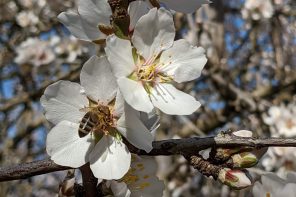Click Here if you listened. We’re trying to gauge interest so only one question is required; however, there is a spot for feedback!
Read along below!
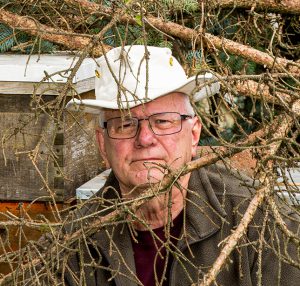 The Stark Reality of Being a Long-Term Beekeeper
The Stark Reality of Being a Long-Term Beekeeper
By: James E. Tew
Overall, beekeeping is enjoyable – but it’s not always easy
Readers, in several previous articles, I have danced to this tune with you. Yet, for personal reasons, I feel a need to try again. Though many of us feel it, it’s not easy to explain what we feel about our bee efforts. I am an entomologist and I do not have a deep background in human psychological issues. Clearly, I should stick with what I know, but sometimes I just need to write about what I feel. Even so, I struggle to word it for you. My core thought is – Though beekeeping is generally rewarding (After consideration, I have opted to use the word “rewarding” rather than the word “enjoyable.” Cleaning dead-outs is not enjoyable, but as I prepare the fouled equipment for future use, I feel rewarded.), it’s not always easy.
I’ve done this bee thing for a long time
Having a long history in keeping bees is a helpful attribute for any beekeeper. You remember “when” and you acquire a lot of personal bee-related stories. You learn a lot.
Through the years, I have learned that my bee interests will cool a bit during Winter months. So, I adapt to that reality. During those cold, quiet periods, I read about bees, or I write perfunctory articles about understanding more about our craft. I assemble or repair equipment. I plan for the next season. I just try to stay busy in my craft during this down time. While it is a useful time, this quiet period cannot be called true beekeeping. Rather, those times are “preparing for actual beekeeping.” Try as I might, my bee interest drops to a lower ebb during these slack periods. How could it not?
From experience acquired during many previous quiet Winters, I know this bee-related seasonal feeling is coming. I expect it. It’s a normal part of my beekeeping psyche. I also know that when Spring comes around, I will – just like my bees – once again awaken and heat back to a higher level of beekeeping interest. In my earlier years, I don’t recall a mentor telling me that my bee interest would naturally rise and fall – usually based on the passing of annual seasons.
Building a fire
Successful beekeeping is much like building a glowing bonfire. Fuel must be accumulated. Dates are set. A location is selected. All is made ready. The fire is ignited, it starts slowly and, as more fuel is added, it steadily grows until it reaches its capacity. Then, invariably, it begins to ebb. Without more fuel and tending, it will die out and extinguish. Interest in beekeeping is much like building a fire. It waxes and wanes. Unfortunately, for some of us, the fire goes out. The good news is that the fire can be rebuilt.
In the May 2023 issue of this magazine, I broached some of the feelings that I have about beeyards that I have now vacated. That was one of my most recent efforts to write about beekeeping feelings.
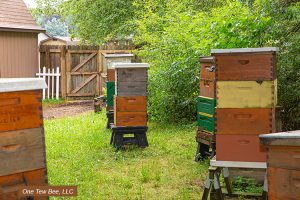
Figure 1. Part of my beeyard in better times.
In that piece, I described the upcoming fate of my oldest yard – my home yard – and how I will need to adapt to having new, near neighbors and a new street abutting my beeyard. I covered my feelings about that issue in my writings for that month. All things change, don’t they?
Then came the wind storm
In early April 2023, a significant wind storm, lasting three days, blew through my area. Trees and apiary damage was all about me. My bee equipment was scattered helter-skelter. On two consecutive stormy days, I had a fifty-five-year-old Colorado Spruce come down. These trees abounded my apiary.
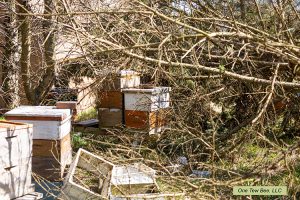
Figure 2. It is not easy working these hives.
On one hand, I can’t complain too much. One tree fell away from my beeyard while the other precisely fell in the only place it could to cause the least damage. I still had three colonies that were crushed. The high wind apparently blew the bees away. There were only a few remaining bees in those obliterated colonies. They did not survive. However, the damage could have been worse. On one hand, that’s the good news. On the other hand, I now have a huge tree down in the middle of my home yard and I have bee equipment either destroyed or scattered throughout my yard. (You must know that I will not be giving any tours of my beeyard any time soon.)
What a mess
I confess that I feel overwhelmed at the prospect of clearing this chaos. I suppose I will select equipment that is still usable, or can be made usable, and form a burn pile for the remainder. But it gets even better. In the middle of all this confusion, I must move the living colonies from the area. Here’s why.
The tree removal people
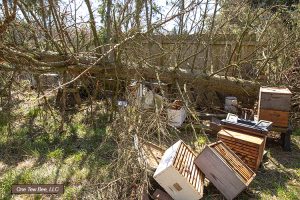
Figure 3. Part of my beeyard challenge.
I had tree removal people come to view the situation. Being professional arborists, I had hoped they would be reasonably comfortable around flying, confused bees. That did not happen! As the tree company representative reviewed the scene – and the bees – from the blue, he asked, “If the bees are a problem, do you mind if we spray them?” Readers, I was truly astounded. I think that I probably gasped. Again, I must write that I was stunned. Within that scenario, I would have even more dead bees and a new category of mess. Now I would also have pesticide contaminated equipment to deal with. After a few seconds, I was able to form sentences and was able to tell this uninformed guy that, “No, I will move these hives to a distant location so his workers could go about their business of tree removal.”
Much like the old late night TV commercials, I now tell you, “But wait, there’s more!” Probably sensing that he had just mightily offended me, he tried to rebound by showing feigned interest in bees. He asked, “There’s a queen in that box and the bees surround her – right?” I felt as though I was having some kind of medical exam. I just wanted this whole encounter to be over. I responded that he was somewhat correct but having NO interest in trying to teach beekeeping, I immediately returned the problem of the downed trees. He gave me a fair price and left to attend to my neighbor’s downed trees.
This was all a new and unfamiliar reality, being a long-term beekeeper. I have never had my apiary so discombobulated. Then in addition, having people so unfamiliar with bees be so intimately associated with my colonies and with my stressed psyche was a new learning experience for this old beekeeper.
I’m still learning
As I have worked to clean and reorganize my apiary site, I have clearly learned that having a large coniferous tree in the very middle of your apiary is not a positive beeyard feature. As a younger man, I would have fired up my chain saw and removed some of the barrier to my bees. I’m not a young man and I am paying a professional company to clear the mess. Let them earn their money has been my feeling. So, I have been trying to work around the big tree as I gather equipment and rearrange bee hives.
I wear high-quality ventilated bee suits. As if to make bad things worse, the needles on the dead tree grab my bee suit and puncture me. At first it was surprising, then it was frustrating, but the stabbing and sticking progressed to being outright annoying. I can hardly move in my apiary without my suit being grabbed by prickly needles that are strong and determined.
But wait, there’s even more!
You recall that I have other issues beyond the downed trees. Remember that I will be having new neighbors located near my beeyard. With this reality in mind, last Spring, I had what I originally thought was a genius idea. I will allow Multiflora Rose, an invasive plant, grow to form an impenetrable barrier between me and my new neighbors. After all, that was the original intent of introducing this obnoxious plant into this country. It was to be a hedgerow plant. Unfortunately, the plant went derelict and is now nearly uncontrollable.
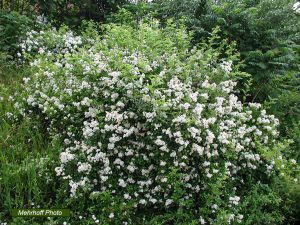
Figure 4. Multiflora Rose in full bloom. Photo credit: Leslie J. Mehroff, University of Connecticut
Multiflora Rose and ventilated bee suits
Being otherwise cut back, this mega-prickly plant now grows at the edges of my beeyard, but in the storm, confusion and destruction, the unwelcome plant has also been upset. Its tentacles reach here and there and, in some cases, snakes through the branches of the downed tree. As bad as it is to have pine needles grabbing my bee suit, Multiflora Rose is profoundly worse.
It is as though the plant is alive. In snake-like fashion, it grabs my suit and dearly holds onto me. I literally rip it off only to have it whip back and grab me again. On two occasions, I had to remove my suit to get the vine detached from my suit. I must wear bee gloves to deal with the thorny plant, not for protection from bees. I can only candidly write that this is not an enjoyable episode in my beekeeping journey.
The stark reality of being a long-term beekeeper
This month, I will be seventy-five years old and I will have been keeping bees for fifty consecutive years. Yet, I am essentially starting over again in my home yard. I’m either impressively dedicated or a very slow learner.
As traumatizing as it has been for me, I have begun to accept the reality that my most personal beeyard was going to change anyway. I was preparing to deal with that reality. Now, part of my tree barrier has vanished. Even more changes are coming.
While trying to make lemonade from lemons within this fallen tree situation, I admit that, in a bizarre way, the trees coming down will assist in additional future fencing that I would be needing anyway. I have already been forced to relocate the remaining colonies to another temporary location. I was going to need to do that task later this Summer anyway.
For the first time in more than forty-five years, I will (temporarily) not have any hives at this location. The yard will essentially be wide open. No trees, no bees and heavy construction nearby. I have a rare window to completely restructure my core yard into a “new and improved” location. I plan to electrify my little bee storage barn and install cameras for security and observational purposes. So, is this a disaster or an opportunity?
Yet another reality of beekeeping
Several of my local beekeeping friends have offered to help, but so far, I have politely declined their offer. Why? Because of “feelings.” These are my bees and they are my responsibility. If I can’t do the job, then I shouldn’t take on the job. For reasons beyond my comprehension, I’m on a lifelong apicultural journey and it’s my thing. I should not seek help from others for the occasional distasteful aspects of my journey in order for me to be able to enjoy the positive aspects of my journey. No doubt, I will get back to you if any of this situation changes in even more unexpected ways.
My lifelong good friend once said…
I once had a lifelong professional friend tell me that I only wrote “disaster” articles. It was a passing comment that he made in jest that I have never forgotten. In fact, I do write about stressful beekeeping events because, to me, those are the events, the episodes, that make me grow in my chosen craft. These trying episodes give me unwanted depth and forced understanding. Also, my trying experiences make me compassionate when other beekeepers tell me of their issues and concerns. Therefore, in this article, I choose to use the word, reality rather than disaster.
I will clean this situation up and I will reestablish colonies in my home yard. It will take a lot of work that is not particularly enjoyable and it will require me to take a lot of naps. It’s beekeeping. Overall, I enjoy parts of it immensely.
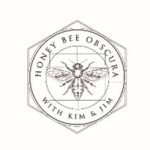 Dr. James E. Tew
Dr. James E. Tew
Emeritus Faculty, Entomology
The Ohio State University
tewbee2@gmail.com
Co-Host, Honey Bee
Obscura Podcast
www.honeybeeobscura.com







